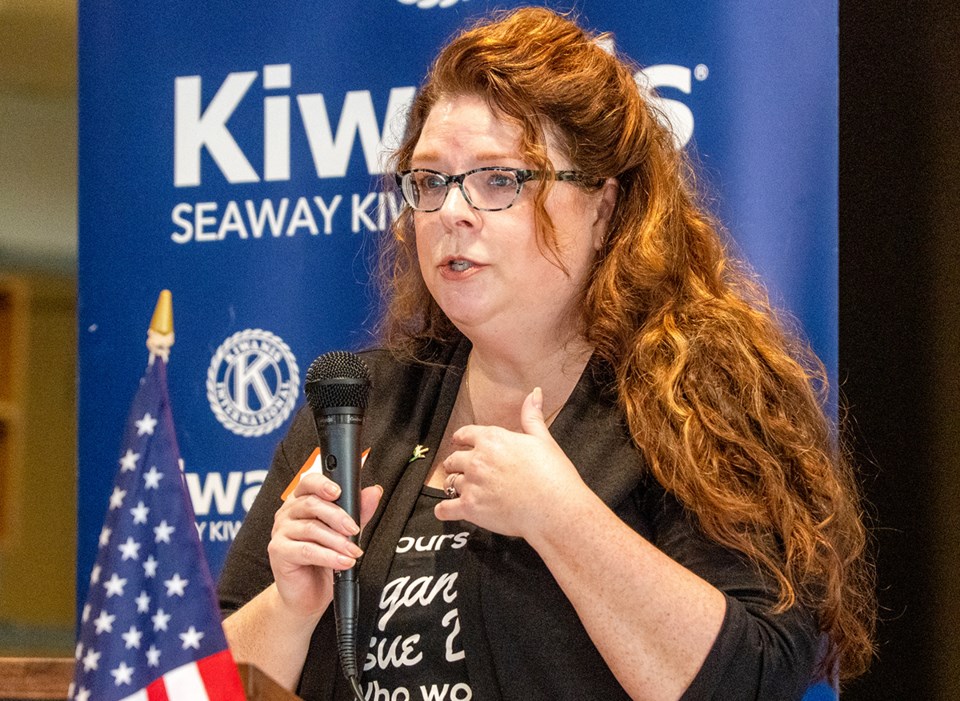Troy Shantz
Sue Morrison-Weir received a phone call on the day she buried her husband Bill.
The doctor on the line had news: two potential matches had been found for his corneas.
“Two people who couldn’t currently see would be given the gift of sight. I was utterly elated,” said Morrison-Weir. “I spent the morning celebrating my husband’s life, and now I had a reason to celebrate for someone else.”
Some 52% of Sarnians and 54% of Lambton County residents are registered organ donors, said Morrison-Weir, who is vice chair of Sarnia Organ Donation Awareness, or SODA.
That places Sarnia 24th and Lambton 16th among 179 Ontario communities. It also means almost half of local residents aren’t registered donors, she told a recent Seaway Kiwanis luncheon.
“Anyone is a potential organ and tissue donor. It doesn’t matter about your age, your race, your sexual orientation.”
The City of North Bay is the top Ontario city for donor registration, at 58%. The provincial average is 34%.
In addition to saving lives, increasing donor rates saves the provincial health-care system millions of dollars annually. Dialysis for someone awaiting a kidney transplant, for example, is more expensive than the cost of the transplant surgery itself, she said.
People can donate their heart, liver, kidneys, pancreas, lungs, small bowel, stomach, corneas, bone, and 75 other tissues, she said. Donors are matched with candidates based on size, health, blood type and age.
Deceased donors are treated with respect, Morrison-Weir said, and families can still have open-casket funerals.
Ontario uses a soft opt-in registration system. Applicants fill out forms to become a donor, but ultimately it’s the family that has final say, she explained.
That’s why it’s important for registered donors to ensure their family is aware of their wishes.
“The decision is hard to make if you don’t know that your loved one has registered. And if you haven’t registered, it’s hard to figure out what your loved one would have wanted during those moments of initial grief,” she said.
Nova Scotia is currently reviewing a soft opt-out system, in which everyone would become an organ donor by default unless the surviving family said otherwise.
Morrison-Weir, who lost her husband Bill to a brain haemorrhage in 1998, is proud of his legacy. In addition to the corneas, his heart, lungs, liver, kidneys, and bones were used to benefit the lives of others.
Weeks after the funeral, she received a letter from a 15-year-old girl. She was grateful that his heart and lungs had saved the life of her own father.
“It gives his seemingly senseless death some meaning,” she said. “One life is lost, but others have been saved.”
To register as an organ donor, visit: https://www.ontario.ca/page/organ-and-tissue-donor-registration
